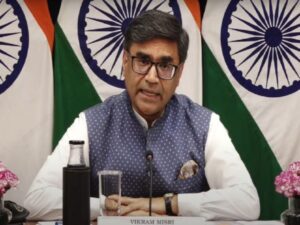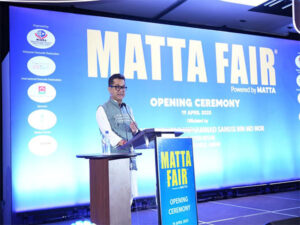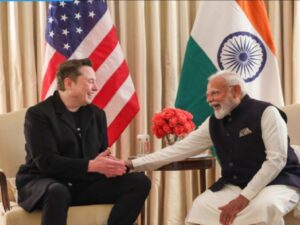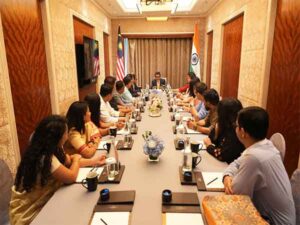Cong can’t be complacent, assume what worked in state will work nationally: Shashi Tharoor
Valladolid (Spain), Jun 16 (PTI) It is important for the Congress not to be complacent after defeating the BJP in Karnataka since voters can change their behaviour between state and national elections, says Congress MP Shashi Tharoor.
He cited the Congress’ poor performance in the 2019 general election after victories in assembly elections in Rajasthan, Madhya Pradesh and Chhattisgarh the previous year to buttress his point.
The party, the author-politician said, cannot assume that “because it worked in one state, it can work nationally”.
“In 2018, we not only came out as the largest single party in Karnataka but also had victories in Rajasthan, Chhattisgarh and Madhya Pradesh. And yet, when the Lok Sabha elections came around in the same states, the BJP trounced us… and even in Karnataka, they left us with just one seat in the Lok Sabha,” Tharoor told PTI on the sidelines of the recent Valladolid edition of the Jaipur Literature Festival.
“So if the voters can change their behaviour in a matter of months, between state elections and national elections, it’s important for us to not be complacent.”
The Congress won 135 seats out of 224 in the Karnataka assembly elections, leaving BJP with 66 seats in the elections held in May this year.
According to the Thiruvananthapuram MP, having a “strong and effective local leadership” and emphasising on local issues helped the Congress win in Karnataka.
“The (Congress) president Kharge is himself from Karnataka, Gandhi siblings came and campaigned, but the lead was taken very much on the ground by local leaders. The emphasis on local issues, local preoccupations, economic issues, infrastructure issues in Bangalore all of these. The things that matter to voters is what the Congress focussed on,” the 67-year-old said.
On the other hand, the BJP’s campaign was “very much top-down and centre-driven”.
“At the local level, they were much more disempowered and so people know Mr Modi and Mr Shah are not going to come and live in Karnataka and run the government. Whatever they had to say was discounted by the voters, whereas when you think in terms of who is going to actually be in charge in Karnataka and you look at what BJP was offering the previous four and a half years, people thought this isn’t enough for us, we need a change,” he added.
In Tharoor’s view, it is evident that issues such as “the hijab, halal, Tipu Sultan and demonising Muslims” have a shelf life and limited use.
Discussing the rift between various leaders of the Congress, he said differences between party ranks are natural.
Over the last few years, schisms within the Congress have repeatedly captured headlines – between Rajasthan Chief Minister Ashok Gehlot and his former deputy Sachin Pilot, for instance.
The Karnataka elections were also fraught with tension over who would be chief minister , Siddaramaiah or DK Shivakumar.
“It’s natural in politics for people to have individual ambitions. They can be committed to the ideology of the party and to the overall agenda of the party but individuals can feel that they are better suited to drive that agenda forward,” Tharoor said.
“The Congress, I am pleased to say, has a relatively more democratic culture in a sense that people feel free to speak up to the leadership and speak frankly and so on. I think it is a question of having the freedom to express one’s views, though ideally it should be done privately and within the party and not in public space,” he said.
Last year, Tharoor contested the election for party president against senior party leader Mallikarjun Kharge.
“There are people who have expressed strong views and disagreements. In my own case, I have conducted a presidential election and lost but at least the party offers scope for that. Mrs Sonia Gandhi said to me that it had strengthened the party and I will take her word for it,” the Congress leader said.
Tharoor attended the literary festival to talk about his book “The Inglorious Empire”. He also attended sessions to discuss topics ranging from India’s colonial past to international relations and Ukraine-Russia crisis.






